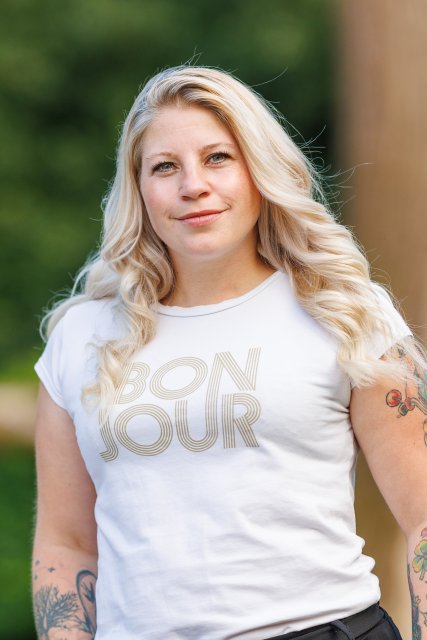"It should always be about the child."
As a parent ending up in the world of youth care often means uncertainty, struggle and feeling alone. Nicole Fintelman knows all about it. For ten years she fought for appropriate help for her son with autism. Now she is committed to supporting other parents. The municipality now operates very differently.
When her second son is born, Nicole immediately senses that he is different. He cries louder and more violently than other babies. As a toddler he hits his head on the ground, resulting in bruises. Things don't go well at daycare and things are tough at home, too. Yet, at first, things seem to be going well at school. Until Nicole learns that her son spends his days under a table.

"How could they say he was doing well when he was hiding there?" she wonders. She is assigned the Triple P parenting program. "But a standard rant about rest and regularity was not what my child needed." After prompting, a test follows: a diagnosis of autism. The phone call with the announcement is etched in her memory. "No explanation, no guidance. I had to make do with it."
At school, little changes. Because her son is not a nuisance, the school does not feel obliged to provide extra support. Nicole decides to search on her own and finds special education in Heerlen. In a small "autistic class" with eight children, her son flourishes. With ambulatory care and occasional overnight stays for the children, air is restored to the family.
Yet the struggle continues. After several years, her son was allowed to return to regular education. "At first, returning did not seem possible because the class was too full. But in the end, after a lot of conversations and research, thankfully it worked out."
For Nicole, it feels like she has been fighting for 10 years. "Authorities don't always cooperate. In everything I miss the voice of the children. While it should always be about the child. Parents are often left to their own devices. Some just let it happen because they don't know what to do."
These very signals have led the municipality of Kerkrade to change its working methods. There is now much closer monitoring of whether the agreed help is actually provided and whether the goals are met. Parents are also given better insight into what is happening and how cooperation with social workers is working. Discussions take place in families' homes as much as possible, together with the professionals involved.
Nicole herself calls herself assertive. Her experiences have made her assertive. But she realizes that not everyone can do that. That is precisely why she wants to assist others. "Because of my path in youth care, I know the possibilities. I want to help parents make the right choices."
After years of struggle, she does see bright spots. There is also an understanding at the municipality that the approach needs to be better. "It's about everyone working together, in the best interest of the child. That's what it's all about."
Also read:
